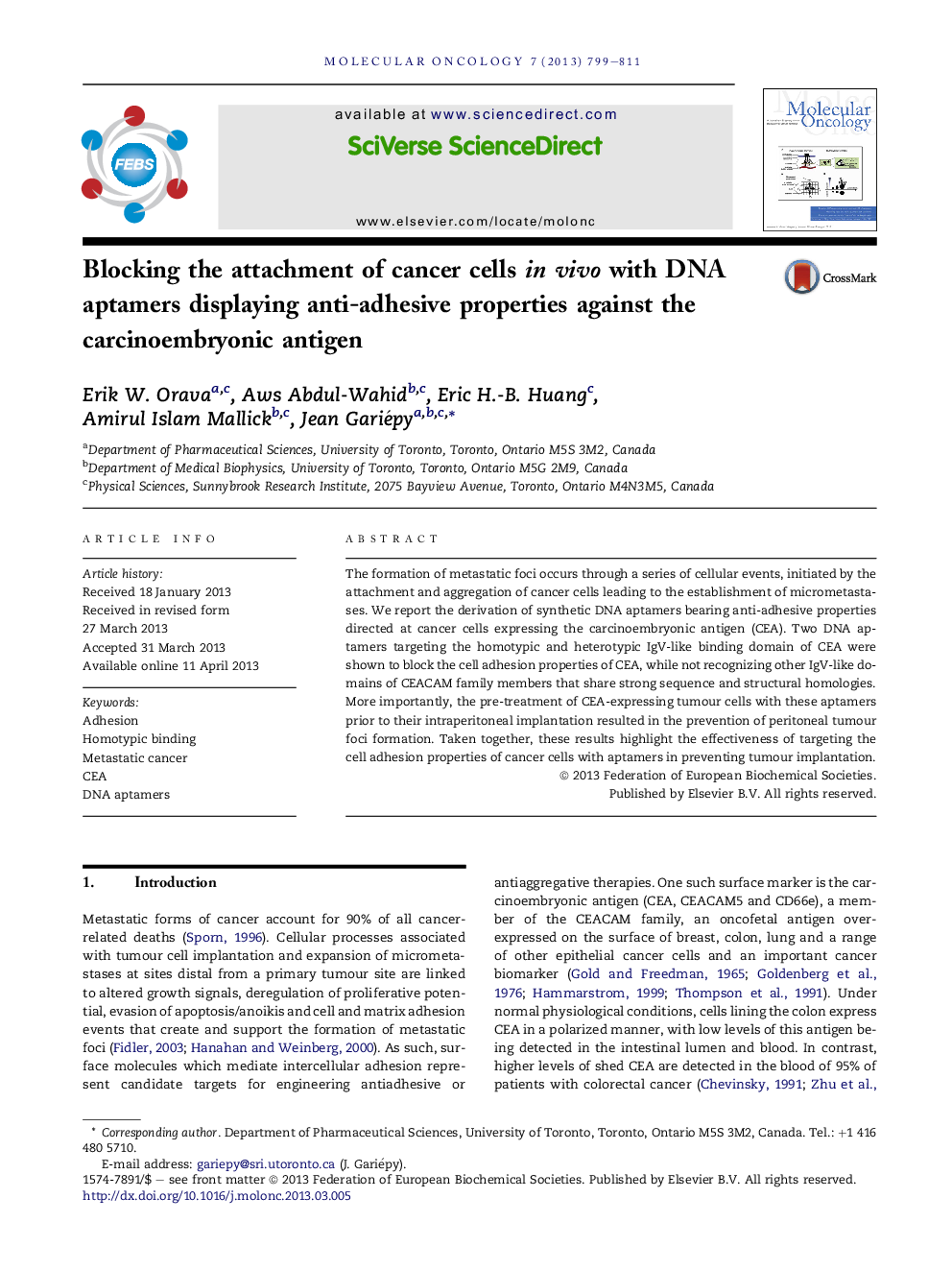| Article ID | Journal | Published Year | Pages | File Type |
|---|---|---|---|---|
| 2145771 | Molecular Oncology | 2013 | 13 Pages |
•Tumour foci formation leading to metastases constitutes the major cause of death in cancer patients.•CEA plays a key role in tumour metastasis and represents a logical target for designing new therapies.•In this study, we report the derivation of DNA aptamers that specifically bound to the IgV-like N domain of CEA.•These aptamers significantly inhibited tumour implantation in vivo by virtue of their anti-adhesive properties.•The inhibitory characteristics of these aptamers highlight the importance of targeting CEA's functional properties.
The formation of metastatic foci occurs through a series of cellular events, initiated by the attachment and aggregation of cancer cells leading to the establishment of micrometastases. We report the derivation of synthetic DNA aptamers bearing anti-adhesive properties directed at cancer cells expressing the carcinoembryonic antigen (CEA). Two DNA aptamers targeting the homotypic and heterotypic IgV-like binding domain of CEA were shown to block the cell adhesion properties of CEA, while not recognizing other IgV-like domains of CEACAM family members that share strong sequence and structural homologies. More importantly, the pre-treatment of CEA-expressing tumour cells with these aptamers prior to their intraperitoneal implantation resulted in the prevention of peritoneal tumour foci formation. Taken together, these results highlight the effectiveness of targeting the cell adhesion properties of cancer cells with aptamers in preventing tumour implantation.
Graphical abstractFigure optionsDownload full-size imageDownload high-quality image (185 K)Download as PowerPoint slide
